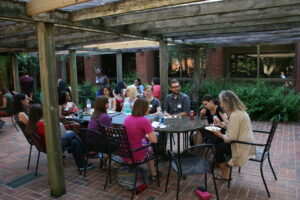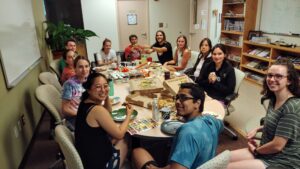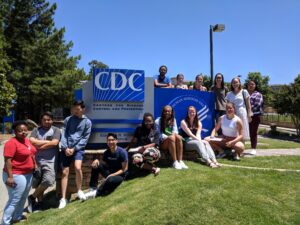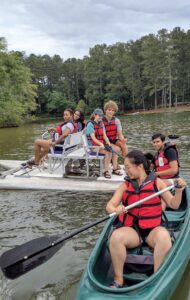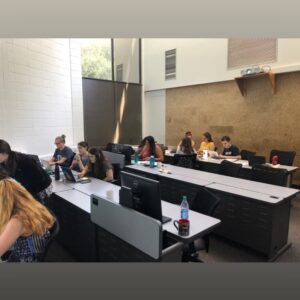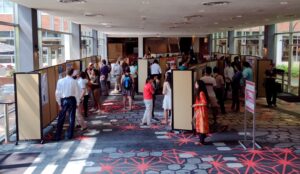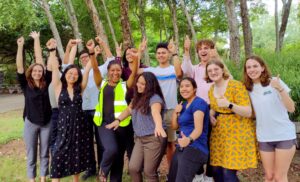Program activities
Research. Participating students’ main activity will be research in one or more of the following areas: ecology, bioinformatics, entomology, epidemiology, evolutionary biology, genetics, immunology, microbiology, public health, veterinary medicine, and wildlife biology.
Orientation & Kickoff BBQ. Each summer’s program will begin with an afternoon orientation session to introduce students and mentors, communicate the vision of the program, review program activities and expectations, and orient students with respect to the UGA campus and the adjacent city of Athens. This orientation will be followed by a barbecue to allow students to meet other students, participating faculty and other UGA researchers.
Lab group meetings. Students will participate in the weekly meetings of their host labs to exchange scientific ideas and discuss literature.
Weekly journal club. All REU students will meet once a week to discuss recent literature. Discussions will be led by senior graduate students or junior post docs, and will emphasize literature that illustrates how empirical and theoretical research can be combined to generate advances in the population biology of infectious disease.
Career-oriented field trip. One or more field trips to will be conducted each year to allow participants speak with scientists and view facilities at non-academic intuitions such as the Centers for Disease Control and the Southeastern Cooperative Wildlife Disease Study.
Annual hike. An optional day-trip to the North Georgia Mountains, which offers numerous hiking trails with scenic views and water features.
Professional development sessions. Three evening sessions focusing on career paths in infectious disease biology and professional development will be offered. Topics will include (1) preparation for graduate school, (2) alternate career paths such as teaching colleges and government agencies, and (3) scientific presentations.
Quantitative biology workshops. Four half-day workshops will promote student awareness of quantitative concepts and skills applied to life science. Workshops will be devoted to the following topics: (1) introduction to mathematical models, (2) introduction to statistical analysis and data exploration, (3) introduction to scientific programming and (4) reproducible research.
Closing symposium. The program will be capped with a half-day symposium. Students will present their research to an audience of faculty, mentors and each other in the form of a poster session.
Follow through. Students are encouraged to complete their research experience by co-authoring scientific papers and conference presentations with researchers from their host labs. The program will promote this follow through by facilitating students and host labs as they continue their interactions beyond the duration of the program. Examples of previous outcomes can be found here.

